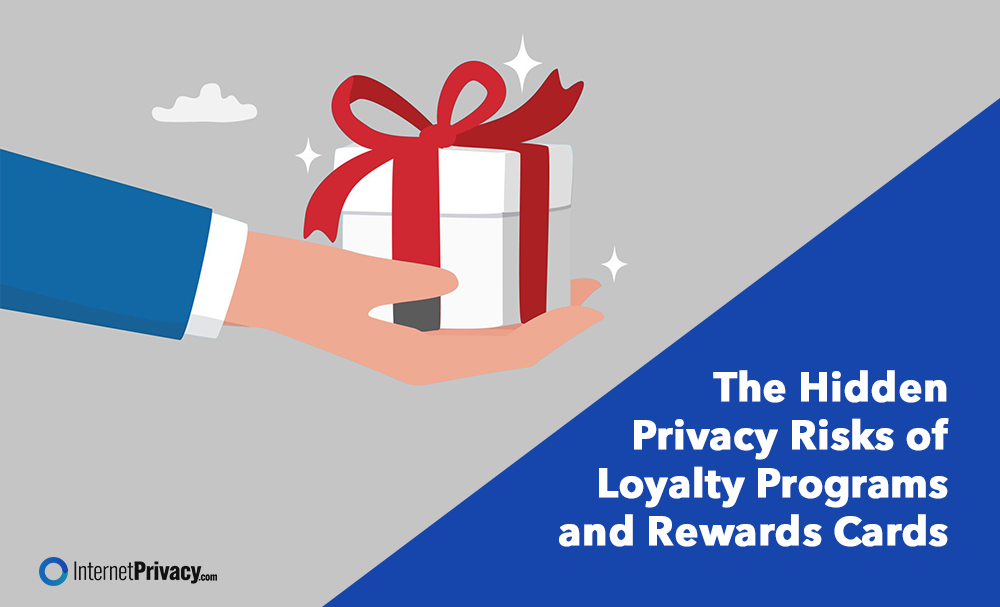Online Shopping Privacy: How To Keep Your Financial Information Secure

Online shopping has become commonplace in the modern world, with many of us using it to purchase goods and services easily. However, with this convenience comes an increased risk of financial security breaches if the proper measures are not taken.
This article will discuss the risks of online shopping, the importance of keeping financial information secure, and provide tips and advice for secure and private online shopping. It will also discuss the benefits of using safe payment methods and how to monitor and assess your financial security after online purchases.
– Take time to read other articles by InternetPrivacy about online shopping and protecting online identity:
15 Tips for Safe Holiday Online Shopping
5 Tips On How To Protect Your Identity Online
Internet Browsing Privacy in 2021: Here’s What You Should Know
Understanding Online Shopping Risks and the Importance of Financial Security
Online shopping has become an increasingly popular way to purchase goods and services in recent years. However, there are a variety of scams and fraudulent activities that consumers may encounter when engaging in online transactions.
Understanding the common types of online shopping scams and the consequences of engaging in insecure financial transactions is an important step to protecting oneself from potential online fraud. Therefore, it is essential to understand the risks associated with online shopping and the importance of maintaining financial security.
Common Online Shopping Scams and Fraudulent Activities
Increased digital transactions make online shoppers increasingly vulnerable to scams and fraudulent activities. To protect their financial information, it is important to understand the risks associated with online shopping. Common online shopping scams and fraudulent activities include phishing, identity theft, and credit card fraud. The table below outlines these activities and offers potential solutions for online shoppers.
| Scam/Fraudulent Activity | Potential Solution |
| Phishing | Be wary of emails and other online communications requesting personal information, such as passwords and credit card numbers. |
| Identity Theft | Ensure that all passwords are secure, and change them regularly. |
| Credit Card Fraud | Regularly review credit card statements for any suspicious activity. |
To protect against these scams and fraudulent activities, online shoppers should also be aware of the security measures that online retailers have in place. This can include using encryption technology to protect personal information and verifiable payment systems that minimize the risk of fraud. Additionally, online shoppers should never provide personal information to an unfamiliar website. By understanding the risks associated with online shopping, consumers can take the necessary steps to protect their financial information.
The Consequences of Insecure Financial Transactions
Unsecured financial transactions can lead to serious consequences for both shoppers and retailers.
In particular, shoppers may suffer from identity theft, financial loss, and damage to their credit score. Identity theft is a major concern, as stolen information can be used to make fraudulent purchases or to access other financial accounts. Additionally, shoppers may suffer financial loss due to unauthorized charges made to their accounts. Furthermore, their credit score may suffer if they cannot pay off the charges.
On the other hand, retailers may experience increased chargebacks, refunds, and legal issues due to fraudulent transactions. The retailer may face a lawsuit and suffer significant financial losses in extreme cases. Therefore, it is essential for both shoppers and retailers to take steps to ensure secure financial transactions.
Taking Precautions: Tips for Secure and Private Online Shopping
Online shopping has become increasingly popular over the years, with the accessibility, convenience, and affordability of online purchases. However, with the increase in online shopping, shoppers must take precautions to secure their financial information.
This discussion will examine three tips for secure and private online shopping, including:
- Choosing secure and reputable websites for online purchases
- Staying vigilant in recognizing phishing and scam attempts
- The role of strong passwords and two-factor authentication in online security.
Choosing Secure and Reputable Websites for Online Purchases
Selecting secure and reputable websites for online purchases is an essential component of maintaining the security of financial information. It is important to be aware of the risks involved in online shopping and take appropriate measures to ensure that the websites used are trusted and secure.
Here are a few steps to help with that:
- Ensure the website has a secure connection, indicated by a padlock icon in the address bar or a URL starting with ‘https’.
- Research the website to make sure it is reputable and trustworthy.
- Check for customer reviews and feedback.
- Look for a physical address and contact information for the website.
Taking these steps before making an online purchase can help to protect customer’s financial information and prevent them from becoming victims of online fraud or identity theft.
Staying Vigilant in Recognizing Phishing and Scam Attempts
Staying vigilant when it comes to recognizing phishing and scam attempts is essential to maintaining the security of personal data while engaging in online activities. Phishing is a type of cyberattack in which a malicious actor attempts to acquire sensitive information, such as passwords and financial data, by masquerading as a legitimate entity. Typically, these attempts take the form of emails or websites that appear official but are counterfeit. It is important to be aware of these tactics, as they can come in many forms and be difficult to detect.
Additionally, scam attempts can involve unsolicited phone calls, texts, or emails offering fake services or goods. It is important to be able to recognize the signs of a scam and never provide financial or other sensitive information to an untrustworthy source. It is also wise to research any unfamiliar companies before engaging in business with them to ensure they are legitimate and reputable.
By being aware of these tactics and taking appropriate measures, it is possible to protect one’s personal financial information and remain secure while engaging in online activities.
The Role of Strong Passwords and Two-Factor Authentication in Online Security
Strong passwords and two-factor authentication are essential components of online security, providing additional layers of protection for personal data. They offer a much higher level of security than the traditional username and password combination.
The following measures are important for maintaining strong online security:
- Passwords should be at least 8 characters long and should contain a combination of characters, such as numbers, upper and lowercase letters, and symbols.
- Two-factor authentication should be enabled whenever possible. This requires users to enter a generated code that is sent to their email or phone number in addition to their username and password.
- Passwords should be changed regularly. This helps to ensure that any potential breaches are quickly detected and mitigated.
These measures provide additional protection for personal data, helping to keep online accounts secure and preventing unauthorized access to sensitive information.
Safe Payment Methods and Their Benefits
Online shopping has become increasingly popular and with this comes the need to be aware of how to protect your financial information. Credit cards and their protection features are a great way to ensure your information is secure.
Third-party digital payment systems such as PayPal and Google Pay offer additional security and convenience. However, understanding the risks of saving payment information on retail websites is important.
Utilizing Credit Cards and Their Protection Features
Making use of credit cards can provide an additional layer of protection for your financial information when shopping online. Credit cards offer a variety of features that help protect customers from fraud and identity theft.
Many credit cards offer fraud alert notifications that alert customers if the credit card is used suspiciously or unexpectedly. This allows customers to identify and stop any fraudulent activity quickly. Credit card companies also offer liability protection, meaning that if the customer’s credit card is used fraudulently, they are not held liable for the charges and the credit card provider will reimburse them for the full amount.
Furthermore, many credit cards allow customers to set up spending limits on their cards, which can help protect them from fraudsters who may attempt to charge large amounts to their cards. Finally, many credit cards also offer rewards programs that allow customers to earn points or cash back when they make purchases with their credit cards.
The Advantages of Third-Party Digital Payment Systems (e.g., PayPal, Google Pay)
Third-party digital payment systems, such as PayPal and Google Pay, provide a convenient and secure way to make payments online. Users are not required to submit their personal financial information when using a third-party digital payment system. This can help to protect the user’s financial information from potential online fraud.
Many of these systems offer extra security measures, such as two-factor authentication. This requires users to enter a code sent to their email or phone in addition to their username and password. This can help to keep user accounts secure even if a hacker were to gain access to the user’s login information.
Furthermore, these third-party payment systems usually offer buyer protection in case of a dispute with a merchant. This can provide more financial protection for buyers in the event of a fraudulent purchase.
Overall, third-party digital payment systems can be a great way to maintain financial privacy online. By not sharing the user’s financial information with online retailers, these systems can help to protect the user’s financial data from potential cyber-attacks. Additionally, the extra security measures and buyer protection can provide a safety net for users in case of any fraudulent activity.
Understanding the Risks of Saving Payment Information on Retail Websites
Continuing on from the discussion of the advantages of third-party digital payment systems, it is important to understand the risks of saving payment information on retail websites. It is essential to recognize the potential vulnerabilities that can arise from saving this data, as it is possible that it can be accessed by malicious third parties.
Generally, there are two main risks associated with saving payment information on retail websites:
- Privacy Risks
- Unauthorized access: Data can be stolen or accessed by malicious third parties.
- Tracking: Retailers may use personal data for targeted advertising.
- Financial Risks
- Fraud: Malicious third parties may be able to make fraudulent purchases with stolen credit card information.
- Loss of funds: Users may lose money due to unauthorized transactions.
Monitoring and Assessing Your Financial Security after Online Purchases
It is important to monitor and assess your financial security after online purchases. Regularly reviewing bank and credit card statements for unauthorized transactions can help identify any suspicious activity that could indicate fraud.
Staying informed about data breaches and compromised retailers can also help ensure that personal information is not used unauthorizedly.
Knowing your rights and recourses in case of fraudulent activities is equally important for protecting your financial security.
Regularly Reviewing Your Bank and Credit Card Statements for Unauthorized Transactions
Regularly reviewing bank and credit card statements can help to uncover potentially fraudulent or unauthorized transactions, providing peace of mind when shopping online. Checking bank and credit card statements regularly can help to ensure that all purchases and transactions were authorized by the account holder.
Here are three steps that should be taken when regularly reviewing bank and credit card statements:
- Carefully review all charges and transactions to ensure that all transactions were authorized by the account holder.
- Look for any suspicious or unfamiliar activity, such as charges or payments from unknown sources.
- If any suspicious or unauthorized activity is found, contact the bank or credit card company immediately to report the incident and dispute the charges.
By following these three simple steps, consumers can better protect themselves from potential fraud or identity theft when shopping online.
Staying Informed about Data Breaches and Compromised Retailers
Staying informed about data breaches and compromised retailers is essential for protecting personal data and financial information.
Data breaches occur when a company’s security is compromised, allowing unauthorized access to sensitive information such as usernames and passwords, credit card or banking information, and other personal data.
It is important to stay up-to-date on data breaches, as many companies may not immediately inform their customers of a breach.
Additionally, customers should also be aware of which retailers may have been compromised by cybercriminals, as the data stolen may be used to commit fraud or identity theft.
It is important to stay proactive about data breaches and compromised retailers.
Various resources are available to help customers stay up-to-date on the latest breach and retailer compromises.
Customers can sign up for breach notifications from various organizations, such as the Identity Theft Resource Center, which will notify customers of any new breaches or compromised retailers.
Additionally, customers can stay informed by reading news articles and staying alert for any notifications from their bank or credit card company.
By staying informed, customers can protect their financial information and take the necessary steps to protect their data.
Knowing Your Rights and Recourses in Case of Fraudulent Activities
Knowing one’s rights and available recourses in the event of fraudulent activities is important in protecting personal data and financial information.
Consumers should be aware of their rights with regard to online shopping security and fraud. Generally, customers can dispute fraudulent charges with their credit card company or payment provider. Depending on the payment provider, customers may be able to dispute charges up to a certain amount without paying for them.
Consumers should be aware of the recourses available to them in case of a data breach or fraudulent activities. Depending on the country, legal recourses may be available to fraud victims, such as filing a police report or suing the company for damages.
It is important for consumers to be aware of their rights and recourses to protect themselves against fraudulent activities. Additionally, consumers should be aware of the steps they can take to protect their financial information and personal data from being compromised.
Conclusion
Online shopping can be a convenient and enjoyable experience, but it is important to be aware of its risks. Users can maximize the protection of their financial information by taking steps to ensure financial security, such as using safe payment methods, monitoring accounts, and staying up-to-date with the latest security measures.
When the necessary precautions are taken, online shopping can be a secure and private experience. Furthermore, it can be an excellent way to save time and money. With the right precautions in place, online shoppers can confidently make purchases.





